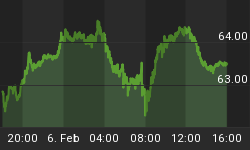I have often spoken about the excessive size of government, and most recently how waste and inefficiency needs to be eliminated from our military budget. Our foreign policy is not only bankrupting us, but actively creating and antagonizing enemies of the United States, and compromising our national security. Spending more and adding more programs and initiatives does not improve things for us; it makes them much much worse. This applies to more than just the military budget.
Recently the Washington Post ran an extensive report by Dana Priest and William M. Arkin on the bloated intelligence community. They found that an estimated 854,000 people hold top-secret security clearances. Just what are all these people up to? By my calculation this is about 11,000 intelligence workers per al Qaeda member in Afghanistan. This also begs the question - if close to 1 million people are authorized to know top secrets, how closely guarded are these secrets?
They also found that since the September 11 attacks, some 17 million square feet of building space has been built or is being built to accommodate the 250 percent expansion of intelligence organizations. Intelligence work is now done by some 1,271 government organizations and 1,931 private contracting companies in about 10,000 locations in the United States.
The former Director of National Intelligence, Adm. Dennis Blair, has asserted that US intelligence now has the authority to target American citizens for assassination without charge or trial. How many of these resources are being devoted to spying on American citizens for nefarious reasons at home rather than targeting foreign enemies abroad?
It has been pointed out how much information we had about the impending attacks on 9/11, but because of layers upon layers of bureaucratic inefficiencies, our intelligence community was unable to act meaningfully on that information. Obviously we needed drastic change. But it was pretty clear that we did not need more bureaucracy, more confusion, more expenditures and more government.
It is even claimed by some leaders that the intelligence community has grown this way by design; that it is advantageous to have more than one set of eyes looking at the same information. With this logic, is there any number of intelligence employees at which we achieve diminishing returns? Can there ever be too many cooks in the kitchen, in their view?
Are there any problems at all that the government wouldn't attempt to solve by throwing more money at them? Even now, the government is trying to solve our economic problems related to too much government spending and debt, with more government spending and debt.
The problem with our intelligence community before 9/11 was not an inability to collect information. Therefore, the post-September 11 build-up of the surveillance state does nothing to enhance safety. Instead what Americans have gotten in return for the billions of tax dollars spent on security is a surveillance state that reads our e-mails, wiretaps us without warrants, and strip searches grandmothers at airports. This is yet another instance in which Americans would be safer, richer and freer if our government would simply look to the Constitution and respect the boundaries it has set.















